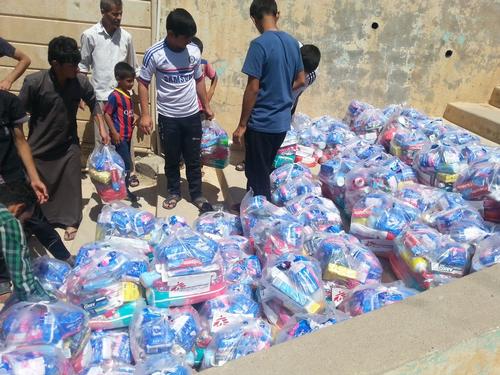Geneva, 18 June 2014 — Following severe damage of its clinic in Tikrit as a result of the shelling of the city on 13 June, preventing the provision of medical care to approximately 40,000 people displaced by the recent surge in conflict in Iraq, Médecins Sans Frontières (MSF) is calling on all warring factions to immediately respect medical staff and facilities, and to spare the lives of civilians.
Humanitarian situation extremely worrying
“Direct or indirect attacks on health staff and structures seriously impede the delivery of essential medical aid,” said MSF’s Head of Mission in Iraq, Fabio Forgione. “These attacks stop us from accessing patients and put our staff and patients at severe risk.”
With the recent wave of violence expanding by the day, the humanitarian situation in Iraq is extremely worrying, particularly in Mosul in the northeast, and in the Anbar governorate, in the west of the country.
Urgent need for water, food, shelter, emergency health care
“Several hundred thousands of people have fled Mosul and the Anbar governorate and are now faced with very difficult conditions. They are staying in schools, mosques, unfinished buildings or with relatives, and urgently need water, shelter, food and emergency health care. However, providing the most basic assistance and medical care is extremely challenging in such an environment where the medical activities themselves are under attack.”
Despite the very volatile security situation, on Sunday, MSF teams distributed relief to 250 families in the city of Bashiqa, located in Mosul district. Teams in Bashiqa and Tess-Kharab (between Erbil and Mosul) are also running mobile clinics to provide medical care to the displaced people.
MSF to step up activities, despite violence
In the coming days, MSF will step up its activities in Iraq through mobile clinics in the area between Dohuk and Mosul, where thousands have sought refuge. MSF is also planning to open a medical clinic in Kirkuk, and will reinforce its surgical teams in Tikrit and Hawijah. If security is guaranteed, MSF will continue to distribute relief items to the most vulnerable displaced people in the areas where the organization is working.
Since April, MSF teams have been providing assistance to displaced people in Tikrit who have fled from Falluja over the past months. MSF recently provided relief items such as hygiene kits and blankets to 3,000 families.
Despite the ongoing conflict in Iraq, which has made it very difficult for humanitarian organizations to work in the country, MSF is striving to provide medical care to the Iraqi people. MSF has worked continuously in Iraq since 2006. In order to ensure its independence, MSF does not accept funding from any government, religious committee or international agency for its programs in Iraq, and relies solely on private donations from the general public around the world to carry out its work. In Iraq, MSF currently employs over 300 staff.




